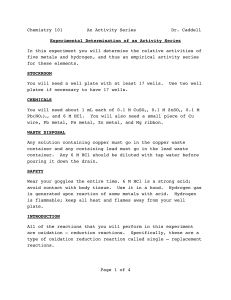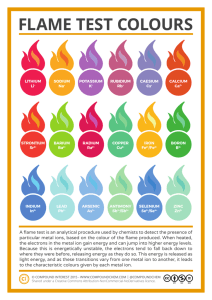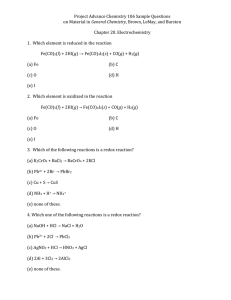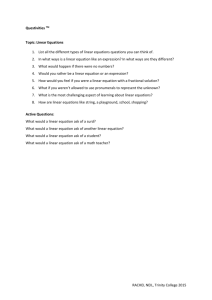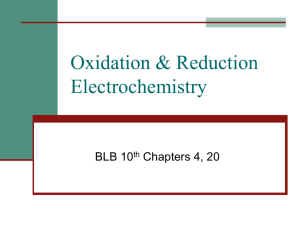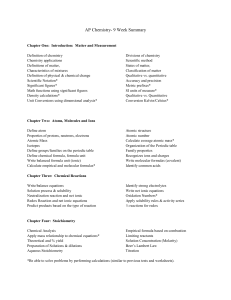Report 4: Totally, Terrific Table
advertisement
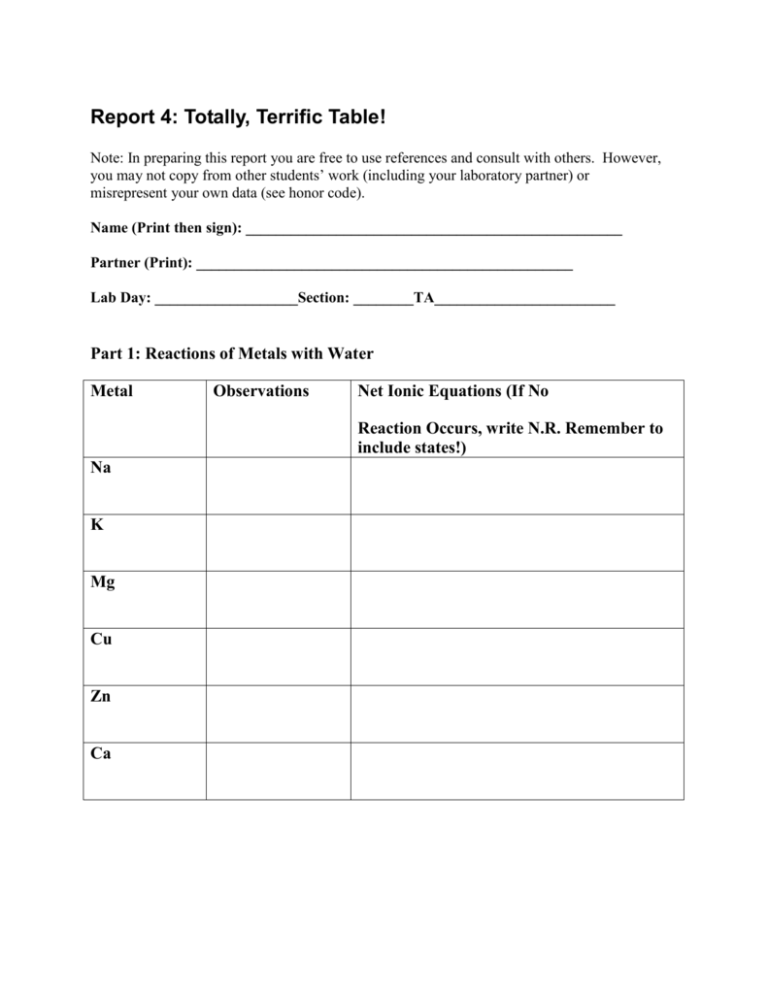
Report 4: Totally, Terrific Table! Note: In preparing this report you are free to use references and consult with others. However, you may not copy from other students’ work (including your laboratory partner) or misrepresent your own data (see honor code). Name (Print then sign): __________________________________________________ Partner (Print): __________________________________________________ Lab Day: ___________________Section: ________TA________________________ Part 1: Reactions of Metals with Water Metal Observations Net Ionic Equations (If No Reaction Occurs, write N.R. Remember to include states!) Na K Mg Cu Zn Ca Part 2: Reactions with HCl Metal Observations Net Ionic Equations (If No Reaction Occurs, Write N.R. Remember to include states!) Mg Cu Zn Based on your experimental results, place Mg, Cu, Zn, and Ca in order of increasing strength as reducing agents. (i.e. a>b>c>d) Part 3: Reactions with Other Metal Ions 1. Write in the appropriate box either “REACTION” or “NO REACTION”. Zn Cu Pb Ag+ Cu2+ Zn2+ Pb2+ Do not test Do not test Do not test 2. Write net balanced equations to represent the results tabulated above. 3. Based on your experimental results, arrange Ag, Cu, Zn, and Pb in order of increasing strength as reducing agents. (i.e. a>b>c>d) 4. Arrange Ag+, Cu2+, Zn2+, and Pb2+ in order of increasing strength as oxidizing agents. 5. Combine the results from Part 2 and Part 3. Arrange Mg, Cu, Zn, Ca, Ag and Pb in order or increasing strength as reducing agents. 6. If it is found that Ni will deposit on Zn foil, but not on Pb foil when a drop of NiSO 4 is placed on both where would you place Ni in the trend seen in question 5? Part 4: Flame Tests Element Li Color in flame Na K Rb Cs Ca Ba Cu Pb Fe (II) Fe (III) Sr List two limitations of this test and provide several sentences of explanation.
